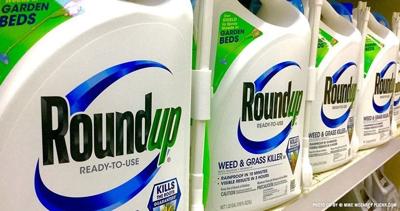
KANSAS CITY — The Missouri Court of Appeals for the Western District has affirmed a trial court's judgment awarding over $1.5 billion in damages to four plaintiffs who claimed that prolonged exposure to Monsanto’s herbicide Roundup caused them to develop non-Hodgkin’s lymphoma.
The appellate court rejected all seven points raised by Monsanto in its appeal, concluding that the company failed to demonstrate any reversible error in the proceedings.
The case involved consolidated lawsuits filed by Daniel Anderson, Jimmy Draeger, Brenda Draeger and Valorie Gunther in 2022.
Draeger alleged he developed cancer from using Roundup on his Missouri property. Anderson, diagnosed with non-Hodgkin’s lymphoma at age 32, used Roundup over a decade in California.
Gunther claimed nearly 40 years of Roundup use in New York contributed to her illness. Brenda Draeger filed a loss of consortium claim related to her husband’s injuries.
Trial commenced in October 2023 after extensive pre-trial litigation, including dozens of motions and the appointment of special masters to assist in evaluating legal arguments.
Despite Monsanto’s objections, the court adopted all ten of the special masters’ recommendations either before or during the trial.
The plaintiffs brought claims of strict liability for design defect, failure to warn, and negligence, all centered on the herbicide’s active ingredient glyphosate and its alleged link to cancer.
Monsanto’s defense largely relied on the Environmental Protection Agency’s determination that glyphosate does not pose a risk to human health.
After less than eight hours of deliberation, the jury found in favor of the plaintiffs. Anderson was awarded $38 million in compensatory damages and $500 million in punitive damages.
Draeger received $5.6 million in compensatory and $500 million in punitive damages. Gunther was awarded $17.5 million in compensatory damages and another $500 million in punitive damages. Brenda Draeger received $100,000 for her loss of consortium claim.
Following the jury’s verdicts, Monsanto filed several post-trial motions, including requests for judgment notwithstanding the verdicts, a new trial, and reductions in the punitive damage awards.
The trial court denied the first two motions but granted partial remittitur, reducing the punitive awards to maintain a 9-to-1 ratio of punitive to compensatory damages. Anderson’s punitive award was reduced to $342 million, Draeger’s to $50.4 million, and Gunther’s to $157.5 million.
On appeal, Monsanto challenged several aspects of the trial, including the admissibility of expert testimony concerning a 2022 Ninth Circuit decision that criticized the EPA’s handling of glyphosate’s carcinogenic assessment.
Monsanto argued that expert discussion of judicial opinions was categorically inadmissible and prejudicial. The appellate court rejected this claim, stating that judicial opinions are not automatically excluded from jury trials and must be evaluated like any other evidence for relevance.
Monsanto also claimed that the plaintiffs’ failure-to-warn, design defect, and negligence claims were preempted by federal law under the Federal Insecticide, Fungicide, and Rodenticide Act (FIFRA).
The court disagreed.
Finally, the appellate court upheld the trial court’s application of constitutional due process standards in reviewing the punitive damages, noting that Monsanto continued selling glyphosate-based Roundup without altering warning labels even after previous jury verdicts and scientific critiques.
The court found that the 9-to-1 punitive-to-compensatory damage ratios were constitutionally sound given the circumstances.
With the rejection of all seven of Monsanto’s points on appeal, the court affirmed the trial court’s judgments in full, marking a significant legal blow to the agrochemical giant and reinforcing the liability of glyphosate-based products in cancer litigation.
The respondents are represented by Matthew Clement and Joshua Moore of Jefferson City; and Edward Robertson of Leawood, Kansas.
The appellant is represented by Samuel Hofmeier, Jennifer Berhorst, Robert Adams, Anthony Martinez and Robert Thompson of Kansas City; Barbara Smith of St. Louis; and Kenneth Marshall of Jefferson City.
Missouri Court of Appeals, Western District case number: WD87059




